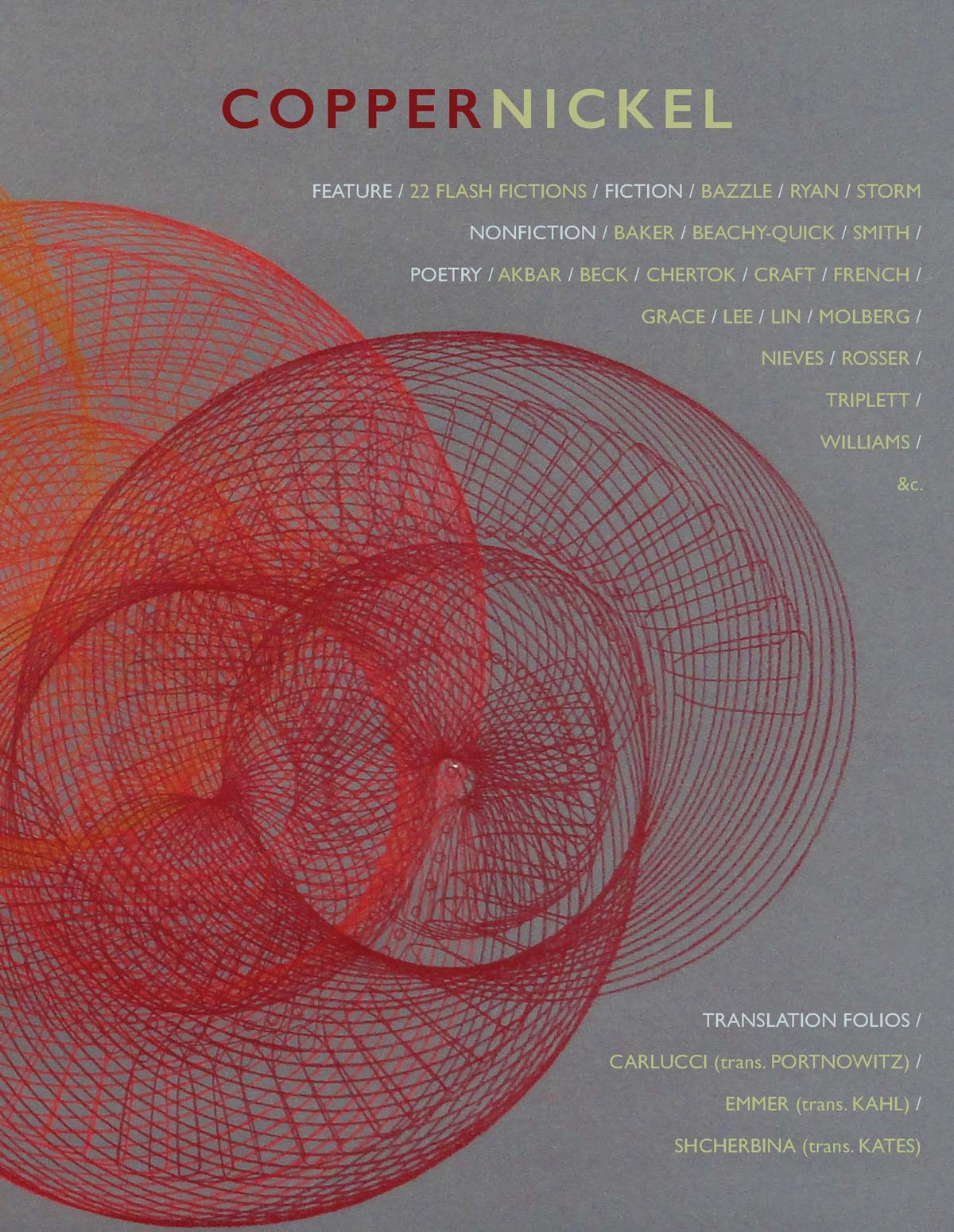I happen to be tired of being
an Arab. My worst, my best childhood memory is listening
to the news every morning, in my dad’s car. I waited
for the tunnel—the interrupted signal, the mountain silence.
The smell of barbershops makes me wail.
I skip the headlines about the CIA tortures, the elections, the war—
the newspaper words crawl up my arms like black ants. I read about
Mercury, how it might help me speak, how Venus might orbit love my way.
I happen to be tired of my feet and my nails
and zaatar, and olive oil, and the scent of bread from the bakery downstairs.
The siren outside weeps into my window, the distance. The coffee
rises in the kettle, the cigarette smoke burns my eye.
Nevertheless it would be delightful
to believe all those things my teita said about Amerka—
everyone there is civilized, and free. And they have street
numbers, and they know how to queue when they’re supposed to.
I don’t want to go on being a root in the dark.
A black friend once told me, “Black is like
Third-World, you know, like Arab.”
(how we carry names and meanings)
I don’t want for myself so many misfortunes—
the way Mezzeh will always mean Syrian prison,
will invoke that TV image of a man with blue swollen legs.
My mother said he was among the lucky ones. I was ten.
This is why Monday burns like petroleum—
for what else burns here?
Houses, and childhood, and olive trees. And still,
the sun, and all this laughter and singing.
And it pushes me into certain corners, into certain moist houses—
My friend who grew up in Syria says Mezzeh
has beautiful cactus trees, says she first kissed there,
first smoked, talks her way into the heart of Damascus.
There are brimstone-colored birds and horrible intestines
and cyclamens on the mountains of my childhood—
pink and fragrant like newborn babies
among the rocks. Here, open mouths. Here, leaf hearts.
I walk around with calm, with eyes, with shoes,
although the sound of a washing machine
in the middle of the night made me scream, shake, ask
if we had a gun in the house, if we knew how to use it.
Notes:
Each italicized one-line stanza is the first line (or part of the first line)
of each stanza of Pablo Neruda’s “Walking Around.”
Teita is Arabic for “grandmother.”
